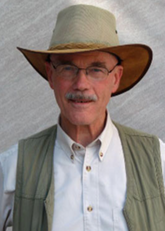Mark Siwik, founder of SandRun Risk, conducts this conversation with Dr. Robert Hall, Professor Emeritus of Operations Management, Kelley School of Business, Indiana University.

SandRun Risk (SR): You published your book Compression in 2009. What key learning led you to formulate your thinking about compression?
No single factor led to Compression. That is the key point. What we have thought of as progress ever since I was a kid in Ed Tetzel’s shop has a limit. We think of progress primarily as more, more money, more sales, more technology, and more efficiency obtaining them. That’s a single-minded pursuit, and ultimately dangerous for that reason. Its excesses by now should be obvious, but they are not – because we are too single-minded.
No such thing as optimum exists except in a narrow context, like zero defects from a production process. That nice achievement asks no further questions, like what objective did the production process achieve? Was it great execution of an objective that is not good for us in the long run?
Compression refers to the squeeze on both us and to the squeeze on earth from many different factors: degrading ecology, and diminishing concentrations of accessible materials, water being one. Why are we not going for long-term quality instead of ever-increasing quantity? For example, that classic example of lean, Toyota, is still driven to build more and more vehicles as perfectly as they can. What would 2-3 billion vehicles do for the earth (and us), even if they are automatically guided and powered by dark energy from the vast universe?
The squeeze on our own humanity is psychological and social. Are we frenetically running faster and faster to stay in one place? Or even regressing as a stable society of people truly enjoying life? Our touchstone of truth needs to be nature, not a post-industrial, digital economy. Nature does not single-mindedly pursue anything. When it is out of balance, it bites back without favoring anybody.
It’s been 26 years since I first started jelling ideas for Compression, which was modeled as an extension of lean and quality thinking in work organizations. That effort has not been a total failure, but it nearly has. It’s too factual and logical. Few people welcome ideas that challenge the present system. Anything beyond tweaking current “neoliberal” business thinking is threatening. It is why “the human side of lean” has become a popular topic in lean conferences.
Fundamental change in mindsets is a bear. We’re daily steeped in working and living in the present system. We don’t even have the language to imagine anything very far outside it. Thinking in a very different pattern takes a lot of time and practice.
SR: What are some of the different areas in society (e.g., human population, resource limits, information overload) that would benefit from Compression Thinking?
Everybody and everything should benefit from Compression Thinking. I sometimes break down our environmental threats into twelve or more categories, like: energy limits, water shortages, soil degradation, mineral resource depletion, ocean acidification, ozone hole, climate change, declining biodiversity, air pollution, water pollution, population growth, and excess resource consumption. That’s for starters.
Ouch! All these interrelate, but we can’t think about them all at once. Sometimes think that if we fix one of them, we are fixing them all. So, we have a complexity problem. And psychologically, we are overwhelmed by information. We can’t keep up with this, so we don’t. Instead, we tune in to sports and celebrity news – occasionally interrupted by dire news that we shrug off.
Compression Thinking has been an attempt to counteract this deer-in-the-headlights effect. It came along after Compression as an attempt to summarize the message of Compression. We have a few Principles of Compression Thinking on the Institute web site, and an extensive Guide to Compression Thinking. Saying very much about anything this different has probably been a mistake. A quick read does not convey how deep a basic change is implied.
A few of the “principles” should make the point:
Consume less stuff – a lot less stuff. Doesn’t make all the problems disappear, but if we all did it, other problems would shrink in size and scope. But then our economic system would blow up; without growth, it doesn’t know what to do. We have to simplify this mess.
Quality over quantity, always. Here, quality is to all stakeholders over an indefinite period. It’s not merely whether a product or service meets customer expectations, but the consequences to everything and everybody in advance, so far as we can determine. That’s one way to describe the Precautionary Principle, which is that, so far as possible, the party taking action is responsible to assure no harm to anyone or anything before taking action.
That’s bass-ackwards to usual business thinking, and to common regulatory thinking, where it is incumbent on a party harmed, or a regulator, to prove that harm was done afterward, and that the defendant was the cause. We’re not going to get from caveat emptor to quality-over-quantity without substantial cultural upheaval.
Organize for economy of learning, not economy of scale. Learning has to assess external effects, well beyond better efficiency and customer service. Indeed, learning may be the most important work we do. “Don’t do something! Just stand there!” This contradicts cultural ideas of work, that we should have every toe pushing; that only when material is being reconfigured or at least moved are we adding value (a definition of waste in lean). But suppose the value that we are adding is actually screwing up both ourselves and the planet.
Heed physical measures before financial ones. The things most important to a company, or to the ecology, cannot be measured in dollars. Avoid financial funnel vision and market valuation. We live by monetary transactions, so money is necessary, but keep it in its place. (People close to nature clearly grasp that money does not represent value; it’s only a marker for trading purposes. Most of the rest of us live trapped in the illusion that money and monetary valuations are real wealth.)
SR: What is the mission and vision of the Compression Institute?
Well, we had a vision statement we can hardly remember. It was, “Assure survival and well-being using self-learning systems.” Unpack that and it blows up into thinking about business upside down. A vision for a specific project is easier, implying an end point and a boundary around what is to be done. But the Institute has turned into a more tenuous venture, a movement, not a project.
So, another vision is evolving. If in the end, the purpose of all life, including human life, is to perpetuate all life, then we need a very different concept of what we call business. We might not even call it business.
That blows minds, including mine – my instincts of a lifetime. Both in teaching and otherwise, I fed the system, trying to make companies a great deal more efficient – lean, quality, teams, doubling effective capacity with very little capital expenditure. Yay!
A new “vision,” if there is one, is “Act to perpetuate all life, now and in the future. If what you are doing, or are about to do, destroys life in the aggregate – all life, not just human – don’t do it.”
You can go goofy trying to follow this if you don’t interpret it as natural balance. For example, don’t let pests overrun your house, or if deer or wild hogs are overrunning the countryside, you have to thin them out. They have no predators to do it for you. Rebalance nature when it unbalances and give it space.
For example, grow more weeds. Overcutting weeds destroys the life they support, including pollinators. Honeybees are only one pollinator of many. All need more than our crops and flowers to eat. If honeybees are starving, so are many other critters whose role we don’t notice.
To think this way, we have to pay attention and use systems thinking – see linkages. Real people before us have done it – without college educations. Don’t hog the earth, share it and think quality over quantity. Luxury living that tears up the earth can’t last long. Unfortunately, our historic examples of living in wealth induce all of us to want to live like royalty of old. We can’t.
Technically, much of what needs to be done is known; re-use, recycle, localize, etc., and more will be developed. But initiatives are not integrated by a new system of economic thinking. They are appendages on expansion as usual, and mainstream thinking is that “growth” should accelerate. Experiments in living this way are small, not yet a mass movement.
The transformation needed is area-by-area, locality-by-locality, and it’s a transformation in how we consume, not just in how we produce. Consume a lot less and manufacturers will produce a lot less. Obviously, this is anathema to the existing order of things. But the big transformation is mental. If united on a common purpose, it’s amazing what people can do. I’ve seen that power a few times in companies, but to unleash it, owners had to relinquish the idea that the company’s main purpose was to make money for them. Too few of them want to relinquish.
SR: Please describe the work and various projects undertaken by the Compression Institute.
We’ve tried a number of initiatives that didn’t work. The message is not one of helping them make a lot more money. That’s why this is a movement. It’s much less threatening to people who aren’t blessed (or cursed) by much monetary wealth to begin with.
Right now, we’re only using teleconferences to try to convey to people what needs to be done, trusting that they will help us figure out a new way. Several other initiatives are pushing the same wagon, sometimes under the heading of “the new economy.” We’re stressing dialog, developing the ability for people to come together on issues about which they disagree.
SR: What are some of the obstacles and challenges in getting people to adopt a new way of thinking?
Almost everything is an obstacle in a business world where most actions intend to boost growth. Some kinds of activity should grow, like recycling systems. Most others; not so much.
Also, everyone has a somewhat different perspective on how the system does or does not work now. We have to find analogies that they can initially relate to. Great examples are hard to find. Most companies just graft a little green onto their growth paradigm. Those most receptive are down and out in the current system, just figuring out how to do for themselves and create a more self-sufficient life for themselves.
Analogies to lean operations don’t convey much to most people. They know little about lean, or they misunderstand it, or worse they had a bad experience with it.
We also found that people easily see how they are being screwed by the system, and thus are more motivated by that than by environmental crises. Unless a crisis affects them directly, they are not stirred by it; too remote from it.
So, this has migrated from being an exploration of how we can rescue ourselves from environmental ruin to exploring psychology. How can we convert enthusiasm for growth into enthusiasm for a quality future embracing a very different paradigm? The story of the disappearing town of Louisiana, Jean Lafitte. is typical. Use every resource you can obtain to continue as you have been without fully adapting to a new reality – and wrangle every which way doing it.


 RSS Feed
RSS Feed